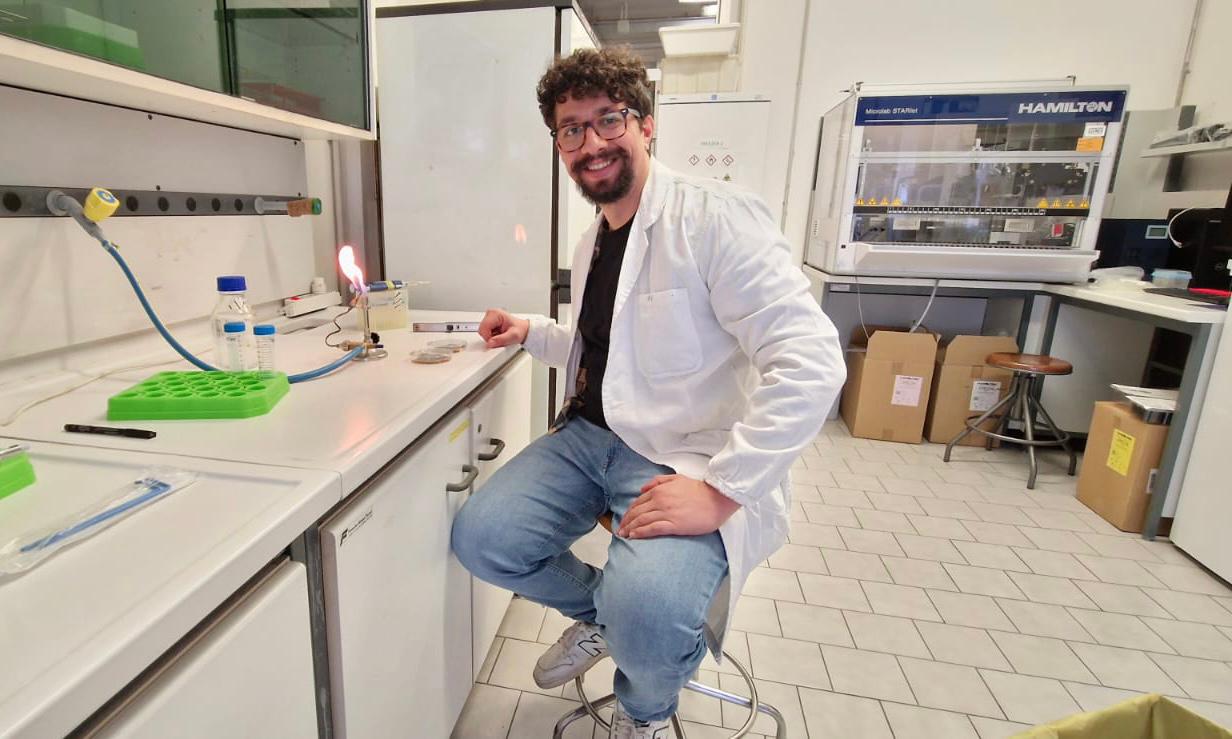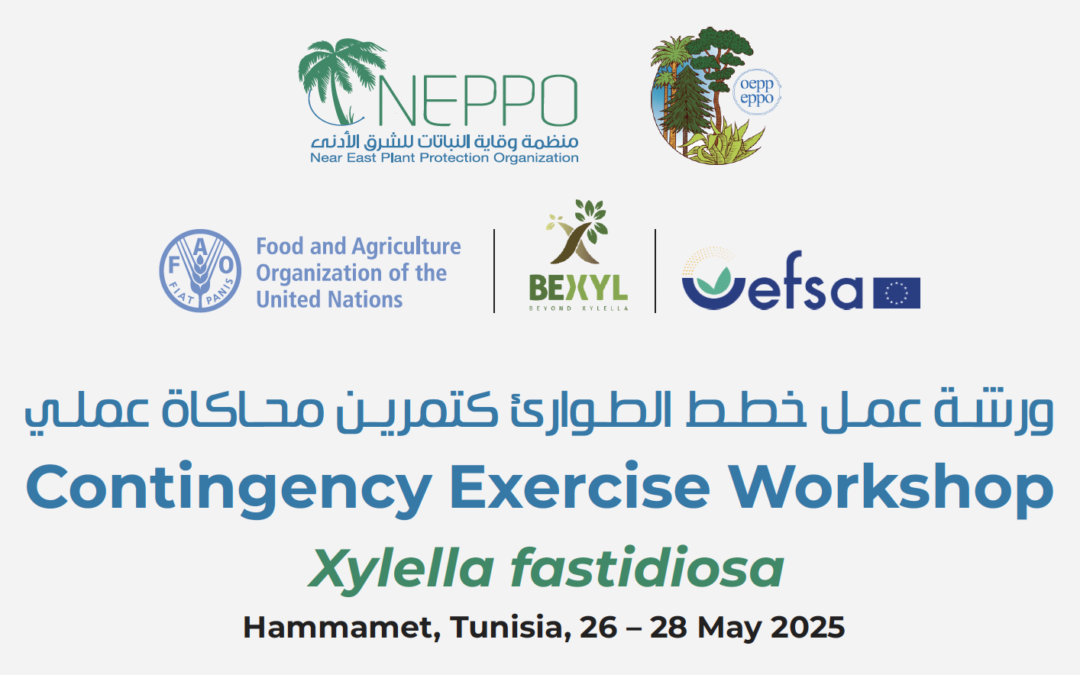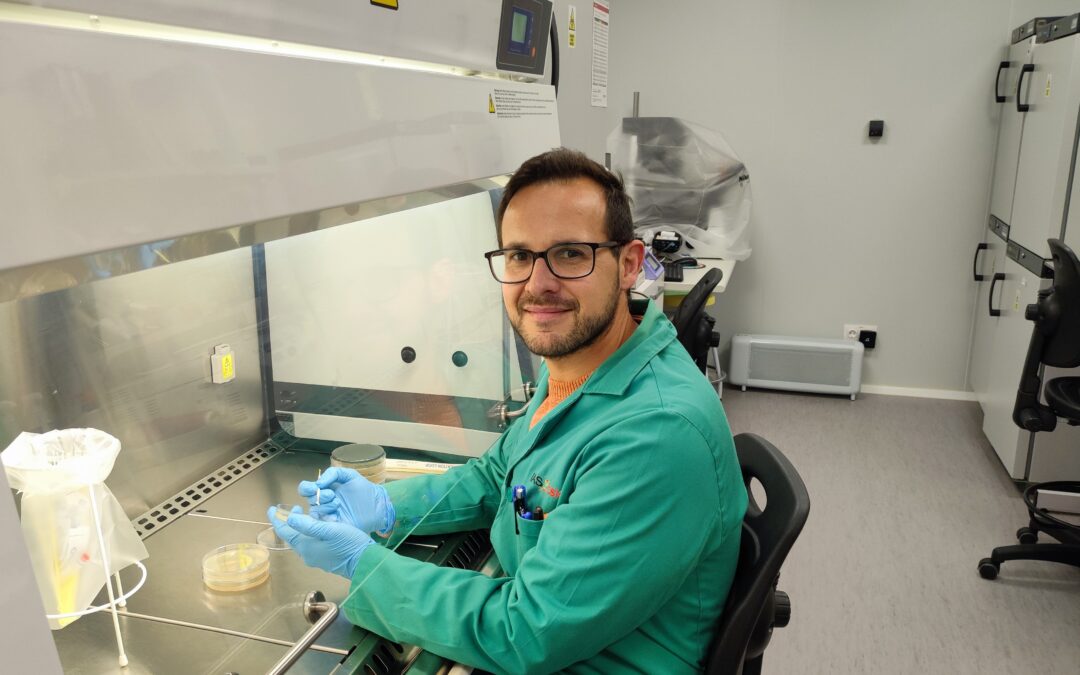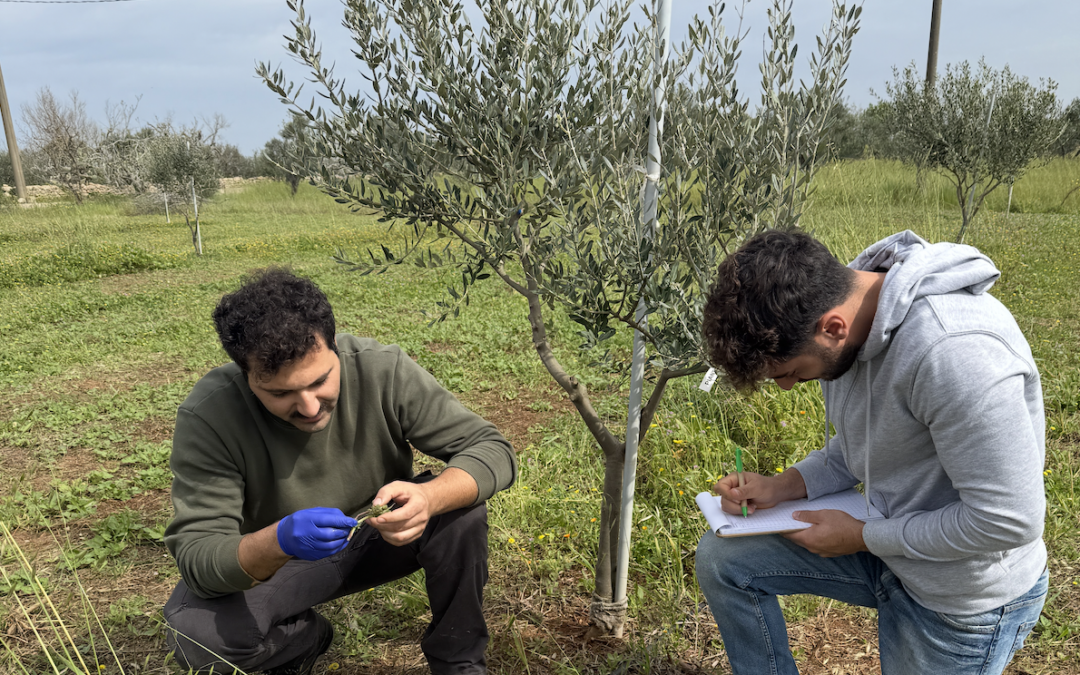Roots count for Francesco Volpe. Volpe is a PhD student at the University of Turin, Italy, where he is doing research in Domenico Bosco’s Lab to develop innovative biological solutions for controlling the insect Philaenus spumarius, the main vector of Xylella fastidiosa in Europe. Already a plant health student, he decided to study Xylella when he saw the ecosystemic, economic and cultural harm the bacterium caused near his hometown, in Apulia. To Apulia, he wants to go back after the thesis to contribute to the agricultural regeneration of its land.
Why plant health?
I have always been deeply intrigued by plant pathology, mainly because of its profound impact on human societies. My passion for this field grew during my Bachelor’s studies when I first encountered the historical effects of major plant diseases, such as the Irish potato blight, which led to the death of over one million people and the coffee rust in Ceylon, which triggered a historic shift of crop from coffee to tea in the British colony. These events highlight the importance of plant health for food security, while also illustrating the challenges related to environmental sustainability, as extensive inputs for plant protection can often harm ecosystems.
I am especially fascinated by the mechanisms through which plant pathogens interact with their hosts and the complexity of plant-pathogen relationships, which present opportunities for developing effective intervention strategies. Furthermore, considering the challenges posed by climate change, ensuring sustainable agricultural practices while safeguarding plant health is more important than ever.
Which academic pathway led you to study Xf?
The main driver that led my studies towards Xylella fastidiosa is the attachment to my homeland. I come from Terlizzi, a small town in Apulia (Southern Italy), where I witnessed firsthand the devastating effects of this bacterium. Over the past decade, X. fastidiosa brought the olive sector to its knees and altered the landscape, damaging a tree symbol of the region. These profound impacts inspired me to begin researching X. fastidiosa during my Bachelor’s degree, culminating in a thesis on the bacterium. Since then, my focus has focused on understanding its vector, Philaenus spumarius, and exploring strategies for its management, which I further pursued during my Master’s thesis on the reproductive biology of this insect and now with my PhD project.
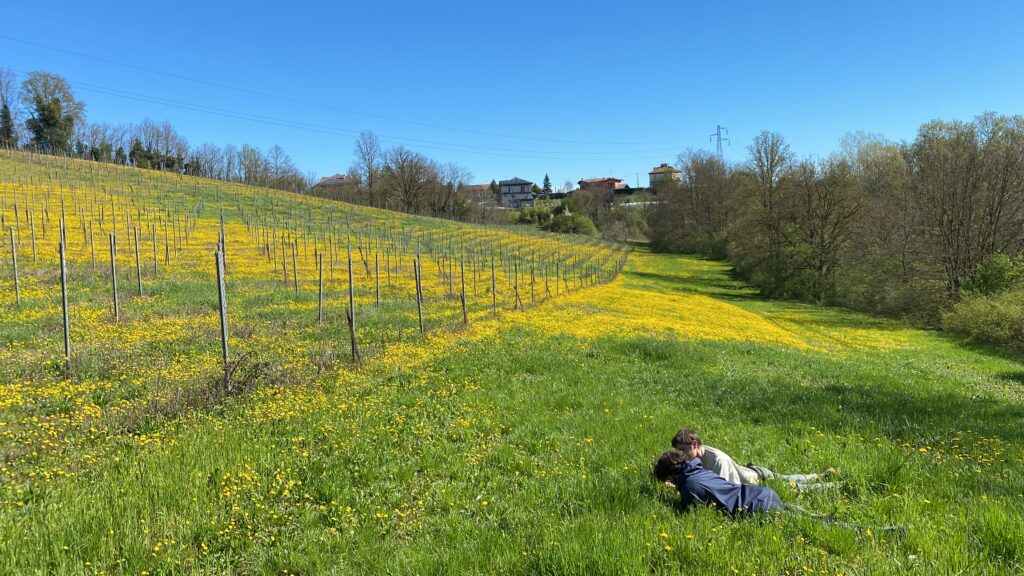
What challenge in X. fastidiosa research are you trying to address?
My PhD research aims to identify new, environmentally sustainable methods for controlling Philaenus spumarius, the main vector of Xylella fastidiosa in Europe. I am exploring two potential biological control agents: entomopathogenic fungi (EPFs) and egg parasitoids. EPFs are a possible alternative to chemical insecticides, offering a more eco-friendly solution for vector management. On the other hand, egg parasitoids like Ooctonus vulgatus are promising biocontrol agents because they target the vector at the egg stage, reducing the vector abundance before it can have any epidemiological role.
The challenge in the Apulian pathosystem is the high mobility of P. spumarius adults, which limits management effectiveness. Therefore, I am investigating whether specific strains of EPFs could affect both juvenile and adult stage of the insect vector, through direct mortality, reduction of fecundity or interfering with the vector’s ability to transmit X. fastidiosa.
What are your main accomplishments?
So far, my research has yielded promising results. Some EPF strains tested in laboratory conditions against juvenile stages of Philaenus spumarius had a good pathogenicity. Few of them have shown the ability to colonize plant tissues and behave as endophytes, suggesting that they could reduce the fitness of P. spumarius and provide prolonged control of the vector. These trials are ongoing, and I am particularly interested in how this endophytic behaviour could strengthen the effects on the target and expand the efficacy window of the treatment in field conditions.
Additionally, I have found that Ooctonus vulgatus, a parasitoid wasp, is widely present in Northwestern Italy and can parasitize more than 40% of P. spumarius eggs. Achieving mass rearing of this parasitoid is challenging, as it would require unknown alternative host species for reproduction. However, enhancing our understanding of the bio-ethology of this insect could be valuable for developing strategies in conservation biological control.
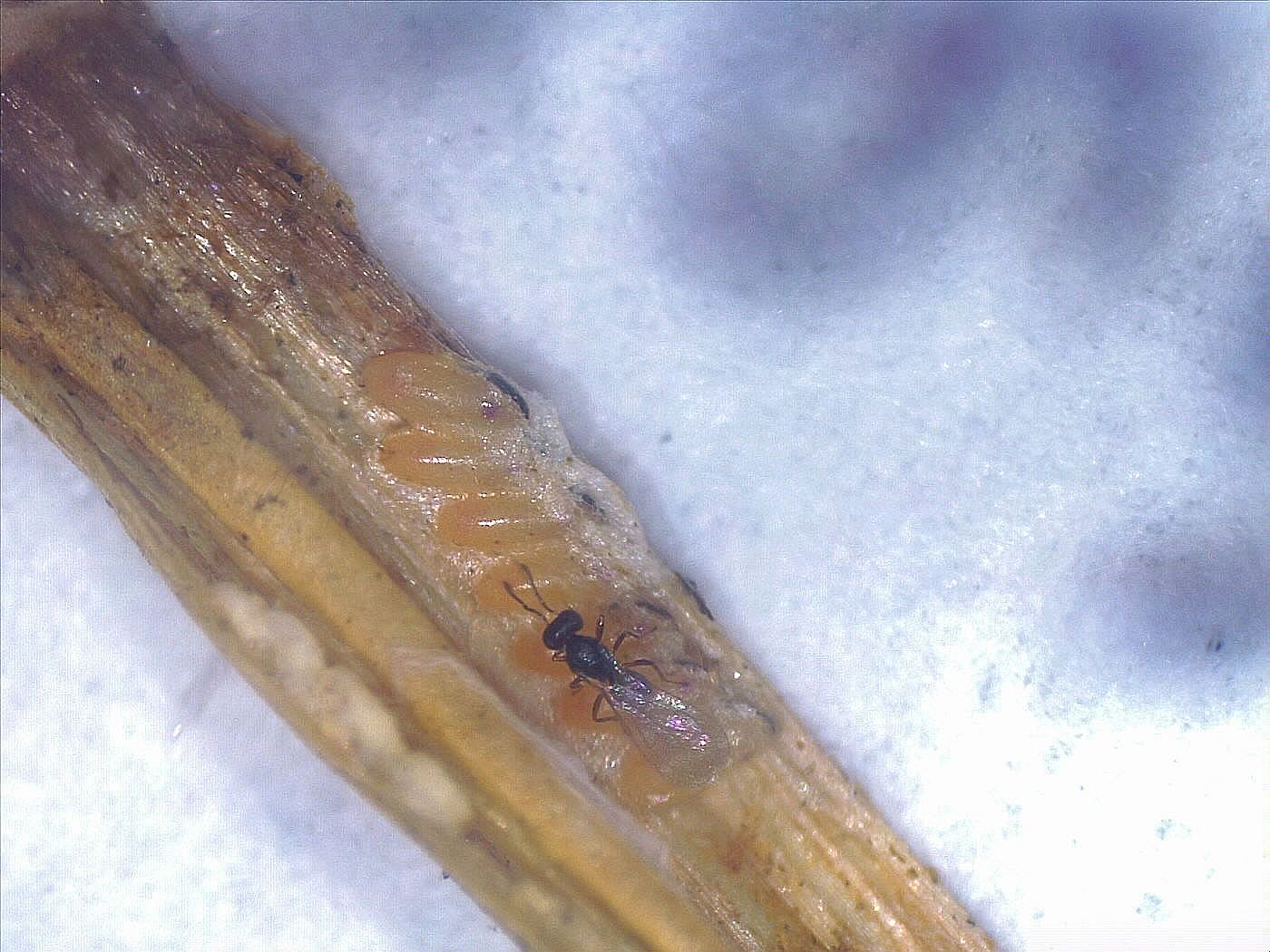
What have been the main obstacles in your research?
The main obstacles I’ve encountered include the monovoltine nature of Philaenus spumarius, which means the vector has a single generation per year. This creates long intervals between trials, making it difficult to gather continuous data. Additionally, the study of egg parasitoids presents logistical challenges, as it requires time and expensive work to catch the egg parasitoid in field that will be available for biological trial in a moment in which P. spumarius eggs are not available in nature.
How did you manage to overcome them?
To address the challenges posed by the Philaenus spumarius life cycle, I am using an imposed climate and photoperiod combination approach to force a semicontinuous rearing of the insects in the lab. This enables me to collect fresh eggs of P. spumarius for experimentation with egg parasitoids. This method could ensure a more reliable and continuous supply of eggs for both lab and field trials, reducing the time between experiments.
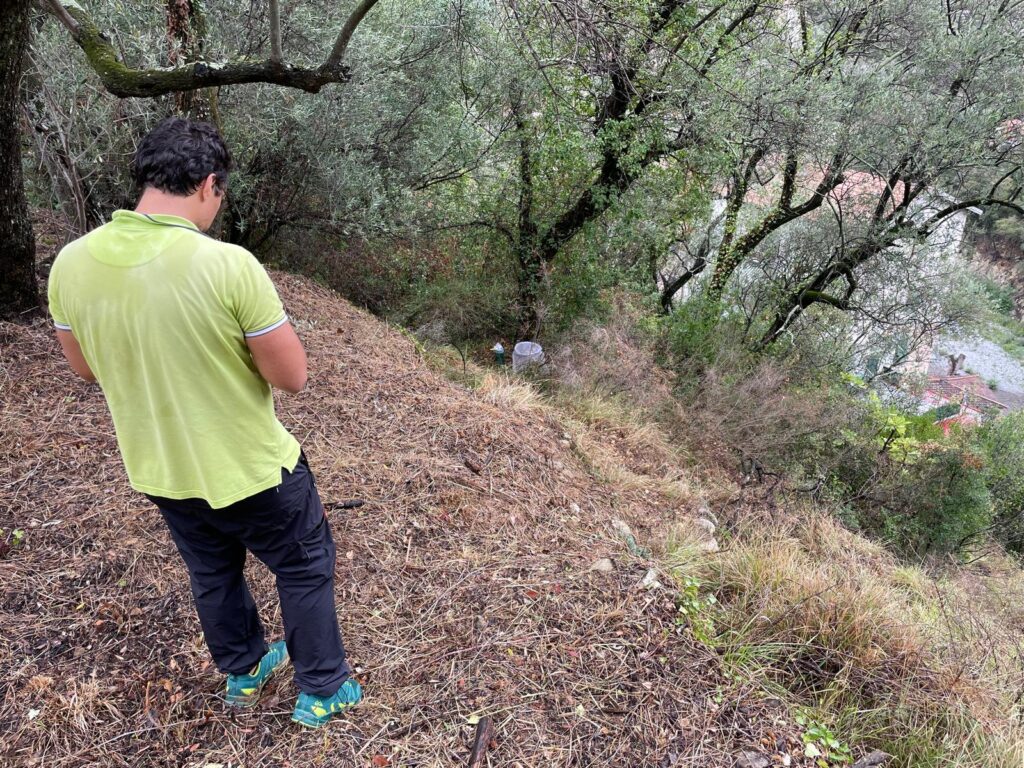
What is your plan after the thesis?
At this stage, my primary focus is on completing my PhD project and delving deeper into the complex dynamics of Xylella fastidiosa and its vectors. However, in the future, I plan to continue contributing to research in this field, particularly exploring new solutions to manage Xylella and its impact on agriculture. Beyond academic research, I like applying my knowledge to practical, real-world problems. Specifically, I would like to contribute to a regeneration initiative in Apulia by bringing the knowledge gained during my PhD and my previous studies to help mitigate the effects of X. fastidiosa and support sustainable agricultural practices in my home region.

